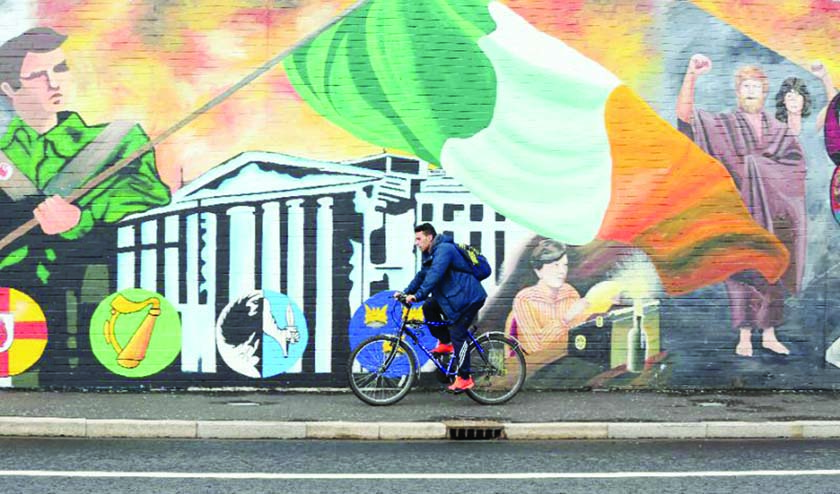
Britain and Ireland said Sunday they would dispatch envoys to help resolve a stalemate in Northern Ireland after elections in the British province last week that failed to end divisions.
Political parties in Northern Ireland started a three-week countdown on Saturday to form a power-sharing executive following Thursday’s election.
The vote was sparked by divisions between the Democratic Unionist Party (DUP), which wants Northern Ireland to remain in the United Kingdom, and Sinn Fein, which wants it to be reunited with the rest of Ireland.
British Prime Minister Theresa May and her Irish counterpart Enda Kenny spoke by phone on Sunday and agreed Britain’s Northern Ireland Minister James Brokenshire and Irish Foreign Minister Charlie Flanagan will hold talks with the parties on Wednesday.
“They discussed their shared commitment to work with the parties to move forward and create a stable administration which ensures a strong, peaceful and prosperous Northern Ireland,” a spokesman for May said.
The British and Irish premiers will hold further talks on the fate of Northern Ireland’s semi-autonomous assembly at an EU summit on Thursday, he added.
Dublin said the two leaders will stay in close contact over the political situation, with Kenny’s office stressing the aim of “re-establishing a functioning executive as soon as possible”.
The election was prompted when Sinn Fein, the Irish republican party, refused to continue working with the pro-British DUP after leader Arlene Foster refused to step aside pending an ongoing investigation into a botched green energy programme she had introduced as energy minister.
The DUP won 28 seats in the election while Sinn Fein garnered 27 seats in the 90-seat assembly.
The overall results marking a historic shift as unionist parties lost their absolute majority for the first time since the province’s creation in 1921.
The Social Democratic and Labour Party (SDLP), a nationalist party, won 12 seats; the Ulster Unionist Party (UUP) won 10; the cross-community Alliance Party took eight; and others won five.
Following the election, Brokenshire called for “urgent discussions” to see the devolved parliament get back on track.
“Now that assembly members have been elected, there is a limited window in which the assembly and executive can be restored,” he said.
Sinn Fein has so far refused to back down on its demand for Foster to step down.
If the political deadlock cannot be resolved within three weeks, the assembly could be suspended and governance of the province transferred to London..
Meanwhile, Russia will have to prove it can be trusted again but there was no appetite among Western allies for a new cold war, British Foreign Secretary Boris Johnson said on Monday.
“Let’s be clear: Russia is up to all sorts of no good,” Johnson said on arrival at a meeting of EU foreign ministers. “They’ve got to change, they’ve got to show they can be trusted again. I think that’s very important,” he added.
“It’s also important to stress that we are not in a new cold war with Russia. Neither the UK, nor our friends in the rest of the EU nor in Washington is there any appetite for a new cold war,” he added.

